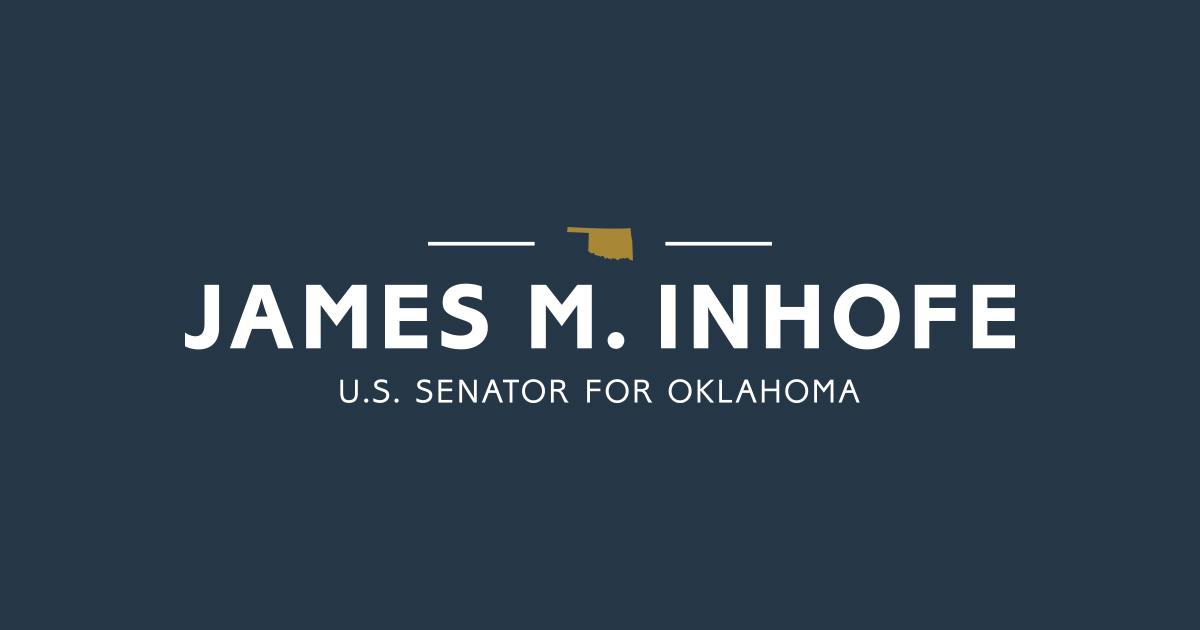Source: United States Senator for Oklahoma James Inhofe
This week, U.S. Sen. Jim Inhofe (R-Okla.) joined U.S. Sen. Catherine Cortez Masto (D-Nev.) in sending a bipartisan, bicameral letter to congressional leaders highlighting important provisions included in the Senate-passed United States Innovation and Competition Act (USICA) to strengthen the Established Program to Stimulate Competitive Research (EPSCoR). The members called on leadership to incorporate these landmark provisions as both chambers consider legislation to improve U.S. competitiveness, especially against China.
The National Science Foundation (NSF) launched EPSCoR in 1979 to reach states that have historically received a low share of research and development (R&D) funds with the goal of enhancing their capacity to conduct nationally competitive research, But currently, EPSCoR represents only a tiny fraction of the NSF’s annual R&D budget, and severe regional inequities in federal research investment still exist.
The United States Innovation and Competition Act includes important provisions to remedy this imbalance by setting aside 20% of NSF and Department of Energy research funding for the 28 EPSCoR designated states and jurisdictions that are currently underserved by R&D funds.
“We strongly support this approach and believe that it is necessary to leverage every state and community in the nation to remain globally competitive,” the members wrote. “…As both chambers consider legislation to improve U.S. competiveness, create new jobs, and expand economic opportunity, we urge you to incorporate these important Senate EPSCoR provisions into the conferenced bill.”
The letter was also signed by Sens. Jack Reed (D-R.I.), Christopher Coons (D-Del.), Jerry Moran (R-Kan.), Roger Marshall (R-Kan.), Susan Collins (R-Maine), Jacky Rosen (D-Nev.), Thomas Carper (D-Del.), Jeanne Shaheen (D-N.H.), Sheldon Whitehouse (D-R.I.), Lindsey Graham (R-S.C.), Jon Tester (D-Mont.), Bill Cassidy (R-La.), Ben Ray Lujan (D-N.M.), Angus King (I-Maine), Tim Scott (R-S.C.), Patrick Leahy (D-Vt.), Cindy Hyde-Smith (R-Miss.), Dan Sullivan (R-Alaska), John Boozman (R-Ark.), Cynthia Lummis (R-Wyo.), Mike Rounds (R-S.D.), James Risch (R-Idaho), Mike Crapo (R-Idaho), John Barrasso (R-Wyo.), Deb Fischer (R-Neb.), Chuck Grassley (R-Iowa), Lisa Murkowski (R-Alaska), Richard Shelby (R-Ala.), Kevin Cramer (R-N.D.), Shelley Moore Capito (R-W.Va.) and James Lankford (R-Okla). The letter also includes: Reps. David Cicilline (D-R.I.), Dusty Johnson (R-S.D.), Sharice Davids (D-Kan.), Andy Barr (R-Ky.), James Langevin (D-R.I.), Trent Kelly (R-Miss.), Chris Pappas (D-N.H.), Nancy Mace (R-S.C.), Dina Titus (D-Nev.), Jake LaTurner (R-Kan.), Steven Horsford (D-Nev.), Don Bacon (R-Neb.), Teresa Leger Fernandez (D-N.M.), Ron Estes (R-Kan.), Chellie Pingree (D-Minn.), Garret Graves (R-La.), Melanie Stansbury (D-N.M.), Tracey Mann (R-Kan.), Peter Welch (D-Vt.), Ralph Norman (R-S.C.), Lisa Blunt Rochester (D-Del.), Don Young (R-Calif.), Tom Rice (R-S.C.), Hal Rogers (R-Ky.), William Timmons (R-S.C.) and Joe Wilson, (R-S.C.).
The full text of the letter can be found here and below.
September 1, 2021
Dear Leader Schumer, Speaker Pelosi, Leader McConnell, and Leader McCarthy:
We are writing today to highlight the importance of the provisions included in the Senate-passed United States Innovation and Competition Act that set aside 20% of research funding for Established Program to Stimulate Competitive Research (EPSCoR) designated states.
As you know, the National Science Foundation (NSF) launched EPSCoR in 1979 to reach states that have historically received a low share of research and development (R&D) funds with the goal of enhancing their capacity to conduct nationally competitive research. But currently, EPSCoR represents only a tiny fraction of the NSF’s annual R&D budget, and severe regional inequities in federal research investment still exist. The top five states that receive the most NSF grants account for nearly 40% of the total.
The United States Innovation and Competition Act, passed on a bipartisan basis by the Senate in June to increase U.S. competiveness in science and technology, includes important provisions to remedy this imbalance by setting aside 20% of NSF and Department of Energy research funding for the 28 EPSCoR designated states and jurisdictions that are currently underserved by R&D funds. We strongly support this approach and believe that it is necessary to leverage every state and community in the nation to remain globally competitive. With the robust investment in R&D funding included in the United States Innovation and Competition Act, this approach will continue to support states that traditionally receive a high amount of NSF research dollars while also supporting innovation in underserved regions.
As both chambers consider legislation to improve U.S. competiveness, create new jobs, and expand economic opportunity, we urge you to incorporate these important Senate EPSCoR provisions into the conferenced bill. We appreciate your consideration and look forward to working with you as Congress continues to consider ways to improve U.S. science and technology.
